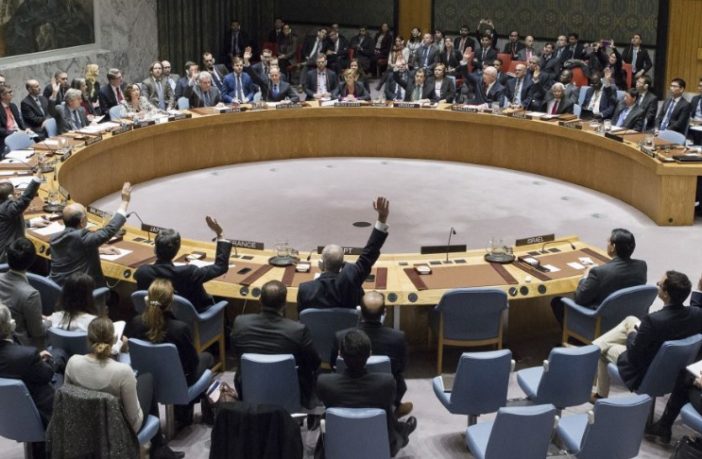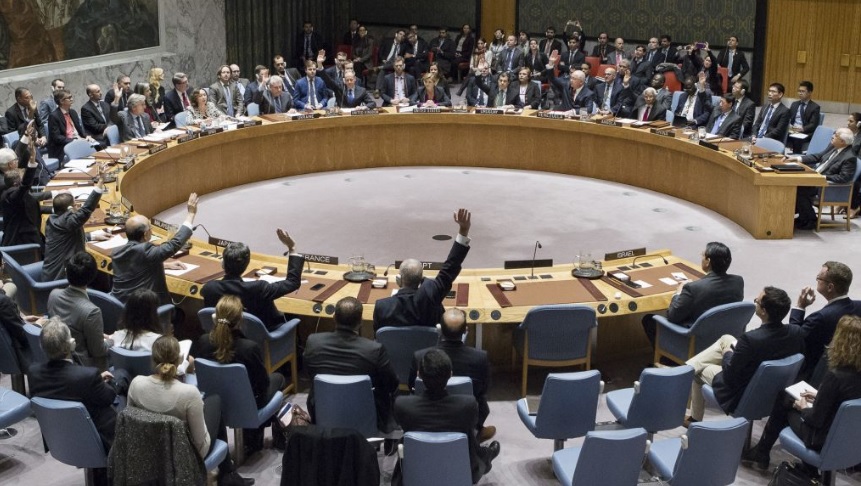Middle East online
Adoption of resolution followed week of contentious negotiations during which Russia, Ethiopia complained that proposed measure appeared to favor Morocco.
The UN Security Council on Friday backed a US-drafted resolution that urges Morocco and the Polisario Front to prepare for talks on settling the decades-old conflict over Western Sahara.
The council renewed for six months the mandate of a UN mission that has been monitoring a ceasefire in Western Sahara since 1991 and spelled out steps for a return to negotiations.
China, Russia and Ethiopia abstained, but the measure passed with support from all 12 other countries in the council.
“The expectation is clear,” US political coordinator Amy Tachco told the council after the vote. “It is time to see progress toward a political solution and after 27 years, to stop perpetuating the status quo.”
Morocco and the Polisario fought for control of Western Sahara from 1975 to 1991, but diplomatic efforts to end the conflict have been deadlocked since the last round of UN-sponsored talks in 2008.
The adoption followed a week of contentious negotiations during which Russia and Ethiopia complained that the proposed measure appeared to favor Morocco’s stance.
Russian Deputy Ambassador Vladimir Safronkov told the council that the resolution was “unbalanced,” adding: “let’s not decide in the place of the sides what the outcome will be” of a new round of talks.
Morocco maintains that negotiations on a settlement should focus on its proposal for autonomy for Western Sahara and rejects the Polisario’s insistence on an independence referendum.
Tachco told the council that Morocco’s autonomy proposal is “one potential approach to satisfy the aspirations of the people of Western Sahara to run their own affairs with peace and dignity.”
– Need for compromise –
While the resolution does not set a timetable for relaunching talks, it stresses “the need to make progress toward a realistic, practicable and enduring political solution to the question of Western Sahara based on compromise.”
In a statement, Moroccan Foreign Minister Nasser Bourita said that goal “identifies with the political solution advocated by Morocco.”
The MINURSO mission was extended until October instead of a full year, giving the council an opportunity to review the situation in six months and decide on next steps.
“This is a turning point,” said the Polisario’s MINURSO coordinator Mhamed Khadad, who pointed to the six-month extension as a window given by the council for progress to be achieved. “We are ready to engage.”
The resolution renews a call for the Polisario to withdraw from Guerguerat, an area in a buffer zone in the southwest near the Mauritanian border, and to refrain from relocating offices to Bir Lahlou, in the northwest.
Morocco’s Ambassador Omar Hilale warned that if the Polisario “will not withdraw, there will be no political process.”
In a bid to quell tensions in the buffer zone, the council requested that UN Secretary-General Antonio Guterres step in to “interview the parties” to discuss the military agreements underpinning the ceasefire.
Guterres last year appointed former German president and ex-International Monetary Fund director Horst Koehler to be his new envoy for Western Sahara with a mandate to restart negotiations.
Koehler is expected to embark on a new regional tour soon to press for negotiations, which some diplomats say could happen later this year.
In a message to Algeria, which has refused to engage in direct talks with Morocco over Western Sahara, the resolution called on the neighboring states to “increase their engagement in the negotiating process” — an element praised by Morocco.
“It is Algeria that arms and shelters the Polisario, it is Algeria that finances it, it is Algeria that oversees it and mobilizes all its diplomatic apparatus to counter the territorial integrity of the kingdom (of Morocco),” Bourita said.
Morocco has long insisted that Algeria come to the table, but Algiers sees this as a ploy to sideline the Polisario and present the conflict as a regional one.
In response to renewal of the MINURSO mandate, Algeria said it hoped this would encourage Morocco and the Polisario to resume talks “as soon as possible and without delay.”
The resolution “reaffirms once more… that there is no solution to this conflict except that which ensures the exercise by the people of Western Sahara of their inalienable right to self-determination,” foreign ministry spokesman Abdelaziz Benali Cherif said, according to the state news agency APS.
The Saharan Arab Democratic Republic (SADR), declared by the Polisario in 1976, is a full member of the African Union.
The mostly desert territory has rich fishing grounds off its coast and may have untapped offshore oil deposits.








